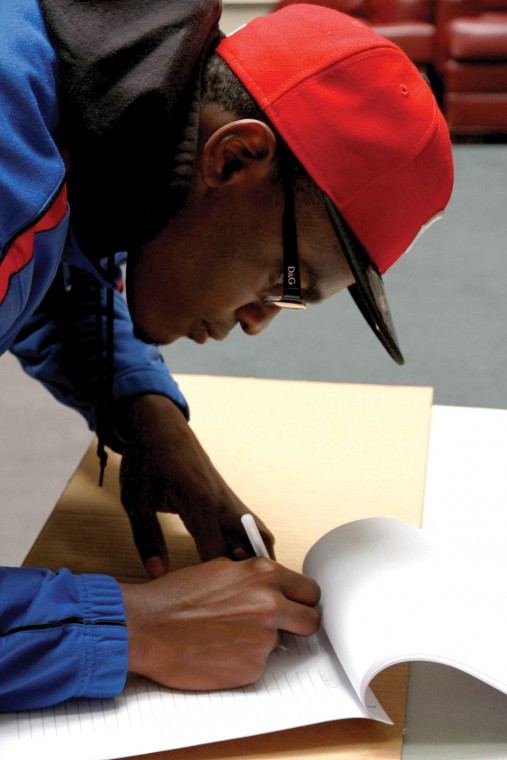EAC Looking to Rid Campus of All Styrofoam Products
November 19, 2010
EAC treasurer Heidi Scott finds it hard to see any good come from Styrofoam products.
“Styrofoam is both harmful to the environment and to the people who use it,” Scott said. “It is full of toxic chemicals that can get into the food and drinks.”
The toxic chemicals in Styrofoam come from its base of petroleum.
“There are 57 chemical byproducts released during the combustion of polystyrene foam,” Scott said. “The process of making polystyrene pollutes the air and creates large amounts of waste.”
Sophomore and EAC secretary Jen Draiss reiterates the harmful components of Styrofoam.
“Styrofoam is made with petroleum, which is unsustainable and contributes to pollution,” Draiss said. “It takes up a large amount of space in landfills because it does not biodegrade, but instead crumbles into pieces which then choke animals and/or painfully clog their digestive systems.”
The hopes of EAC are to replace Styrofoam with biodegradable materials such as wheat straw, or bagasse.
“Both of these materials are made of renewable plant fibers and are non-toxic,” Draiss said.
Not only has EAC taken into consideration what these new materials are composed of, they’ve also looked into the effects of the environment.
“These would be 100 percent compostable and would also be made of corn which is a renewable resource,” Scott said.
The conversion to biodegradable products from Styrofoam mainly comes down to one thing: cost.
“Biodegradable products are slightly more expensive, but when they are put in the landfill they will eventually degrade,” junior EAC member Jesse Van De Krol said.
The eradication of Styrofoam on campus would cost more, but EAC is looking at way to make up for the difference.
“EAC has written letters to the board of trustees trying to persuade them to see if they would be willing to put forward the funds of the extra costs of the biodegradable products,” Van De Krol said.
EAC’s research showed them how much it will cost, which would be about $7 per student per year.
“We are not looking to add this cost onto students’ meal plans but instead looking for possible ways of funding this effort,” Scott said.
Scott says that Blair Stairs has been extremely accommodating with EAC’s efforts.
“Blair Stairs (general manager of Simpson’s dining services) is on board with getting biodegradable cups, but the funding is not yet available,” Scott said.
Draiss is also thankful for his help.
“He is always willing to help us figure out what our options are and we are incredibly thankful for the assistance that he has provided,” Draiss said.
To make this environmentally friendly change EAC needs more than just the help of dining services to rid Simpson of Styrofoam materials entirely.
“In order to rid our campus of Styrofoam we need more than just support from dining services – we need support from the students,” Draiss said. “Students play a key role, and we need to make our voices heard.”












